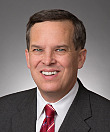03.16.2016
|
Articles
In the industrial Midwest, after multiple ballots, the Republican convention finally chooses its nominee. Operatives for the frontrunner—a nationally known, polarizing figure who has infuriated Democrats with his abrasive rhetoric on the most divisive, racially-charged issue of the day—flood the city “with money to corrupt, with bullies to intimidate and with houries to seduce.” As for his principal opponent, rumors persist that the candidate’s coalition is forged on promises of cabinet appointments in exchange for votes.[1] A journalist rails:
The lesson to the Nation … is the necessity for the abolition of the Caucus System, which, in whatever party organization operative, is a system of swindling, by which the people are defrauded out of the effective exercise of the right of suffrage. There is no honesty in caucuses … The revenues of King Caucus are corruption funds … If a Republican form of government is to be preserved … the people must make a bonfire of his throne.[2]
Can Chicago’s experience in 1860 repeat itself in Cleveland in 2016? One recent commentator suggested that, after the first ballot, presidential contenders “would engage in a fierce lobbying battle for delegates, wooing them with ideological sweet talk, political promises and anything else they have to offer.” Another projected that, on the third ballot, the “delegations will be a hotbed of rumors, deals and rumored deals.” A third suggested that candidates may lure support by offering Cabinet posts, lucrative consulting contracts, and hard cash for votes. One need not watch House of Cards to imagine candidates, top aides, party leaders, and donors fanning out across the floor of the Quicken Loans Arena and hitting the phones to determine the cost of securing the support of delegates, party leaders, and donors. From this perspective, the issues of money and access loom much larger than when conventions were simply derided as “unabashed festivals of corporate cash.” The restrictions that Congress placed on lobbyist-paid events seem quaint when applied to what some think may happen in Cleveland.
But the law is far less forgiving in 2016 than in 1860. Had Lincoln’s convention manager and future Supreme Court appointee, David Davis, been active today, he might have found his way to the Court as a defendant instead of a justice. The federal criminal code at 18 U.S.C. § 599 prohibits candidates from promising to appoint, or using their influence to appoint, any person to any public or private position or employment, “for the purpose of procuring support in his candidacy.” An accompanying provision establishes criminal consequences for promising employment, positions, contracts, appointments or other benefits resulting from congressional action as consideration or reward for political activity or support in connection with general elections, primary elections, or political conventions or caucuses. The Hobbs Act bars extortion affecting interstate commerce and has been used to prosecute various cases of public corruption. Multiple provisions prohibit individuals from offering cash or things of value in exchange for votes. And, finally, the campaign finance laws create avenues for identifying and prosecuting unreported or misreported contributions.
One cannot casually dismiss the viability or constitutionality of these statutes. To do so would depend mainly on an energetic reading of a 1982 decision, Brown v. Hartlage. There, the Supreme Court struck down a Kentucky law as it applied to the nullification of an election result because a candidate pledged to cut his own compensation, if elected, by $3,000. But the Brown candidate’s civic-minded pledge to drain his own pockets is plainly distinguishable from a corrupt attempt to fill someone else’s.
Moreover, these laws, and others besides, operate against a backdrop in which courts and prosecutors have focused closely on electoral transparency and integrity and the protection of “merit-based administration.” The Supreme Court has recognized the legitimacy of regulations “upholding the integrity of the electoral process” and stated plainly that “some kinds of promises made by a candidate [] and some kinds of promises elicited by voters from candidates [] may be declared illegal without constitutional difficulty.” The Justice Department has asserted that the Hobbs Act can apply to promises of future official action, and its Office of Legal Counsel pronounced in 1980 that the law might be violated “if people were promised employment or special consideration for employment [] as an enticement or reward for future political activity or support of a party or candidate.” If a candidate may not offer a primary voter or caucusgoer pecuniary benefits without impermissibly commercializing the voting process, under what logic may a candidate offer such benefits to a delegate standing in the shoes of thousands or tens of thousands of voters?
The general trends toward criminalization of the political process and aggressive enforcement of the bribery laws raise the possibility that a brokered convention could bring these same laws into play, even if the convention in Cleveland more closely resembles the one on The West Wing than the one on House of Cards, or the one in Chicago in 1860. “Exploiting the political process for personal gain will not be tolerated, and we will continue to pursue those who commit such illegal actions.” This is what the Justice Department declared in 2014, when an Iowa state senator pled guilty to concealing payments he received to switch his presidential endorsement before the Iowa caucuses. The Iowa endorsement-buying case is a very good example of where a conspicuous lack of transparency in the political process fueled criminal prosecution. The conventions have long been a lightning rod for reform. This summer, the wattage may be higher.
Endnotes
[1] Michael Burlingame, Abraham Lincoln: A Life (2008), available at, https://www.knox.edu/about-knox/lincoln-studies-center/burlingame-abraham-lincoln-a-life.
[2] Three Against Lincoln: Murat Halstead Reports the Caucuses of 1860, at 27 (William B. Hesseltine, ed., Louisiana U. Press, 1960).




